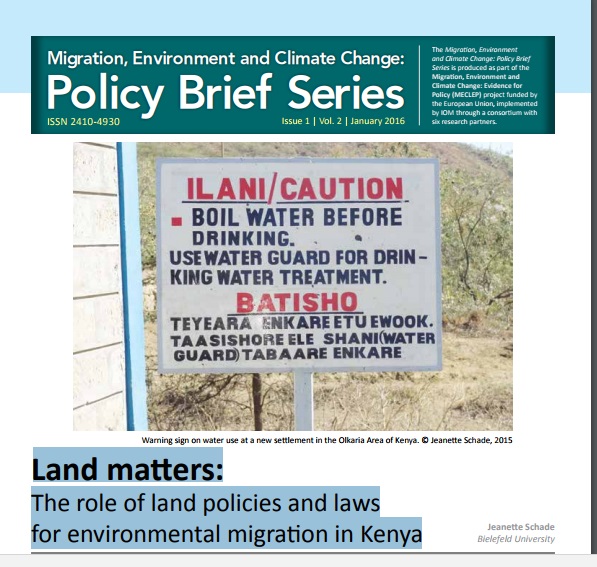Resource information
Matters of environmental migration are frequently looked at from a humanitarian perspective.1 This policy brief will instead look at it with a lens focusing on land issues. The question of environmental migration is inevitably linked to the question of land for several reasons. First, climate and environmental change trigger and accelerate the loss of land due to sea-level rise, coastal erosion, landslides and other forms of land degradation. The loss of land in quantity and quality impacts either upon the livelihoods of people, particularly if these have a naturalresource base, or it may directly threaten and destroy their homesteads. Both types of impact are known to trigger environmental migration and displacement. Second, accelerated environmental migration as an individual or household response to such environmental stressors again creates pressure on land at the places of destination. Equally, planned relocation as both a Statesponsored response to displacement and preventive measure to the risk thereof creates demand for land and land-use changes. Third, both autonomous and State-led responses are in stiff competition with land-use changes for other purposes, such as development investments or creation of protected areas. Some of these activities might even be directly linked to climate policies, such as exploration of geothermal sources or forest conservation under REDD+. Both development investments and conservation activities frequently deprive people from their livelihood sources and even displace them, thus potentially increasing their proclivity to migrate and adding to the numbers of environmental migrants. Finally, it has to be taken into account that land ownership and security of tenure are important factors in determining potential migrants’ decisions on whether or not to opt for migration as a response strategy. For the places of origin, there is evidence that people who own land are less likely to migrate and instead tend to adapt in-situ, whereas people who experience landlessness or acute tenure insecurity are more likely to leave. Inversely, the prospects to achieve land ownership in the course of a planned relocation scheme, particularly if land insecurity is a major problem, can work as a key incentive for the affected population to accept such measure.



